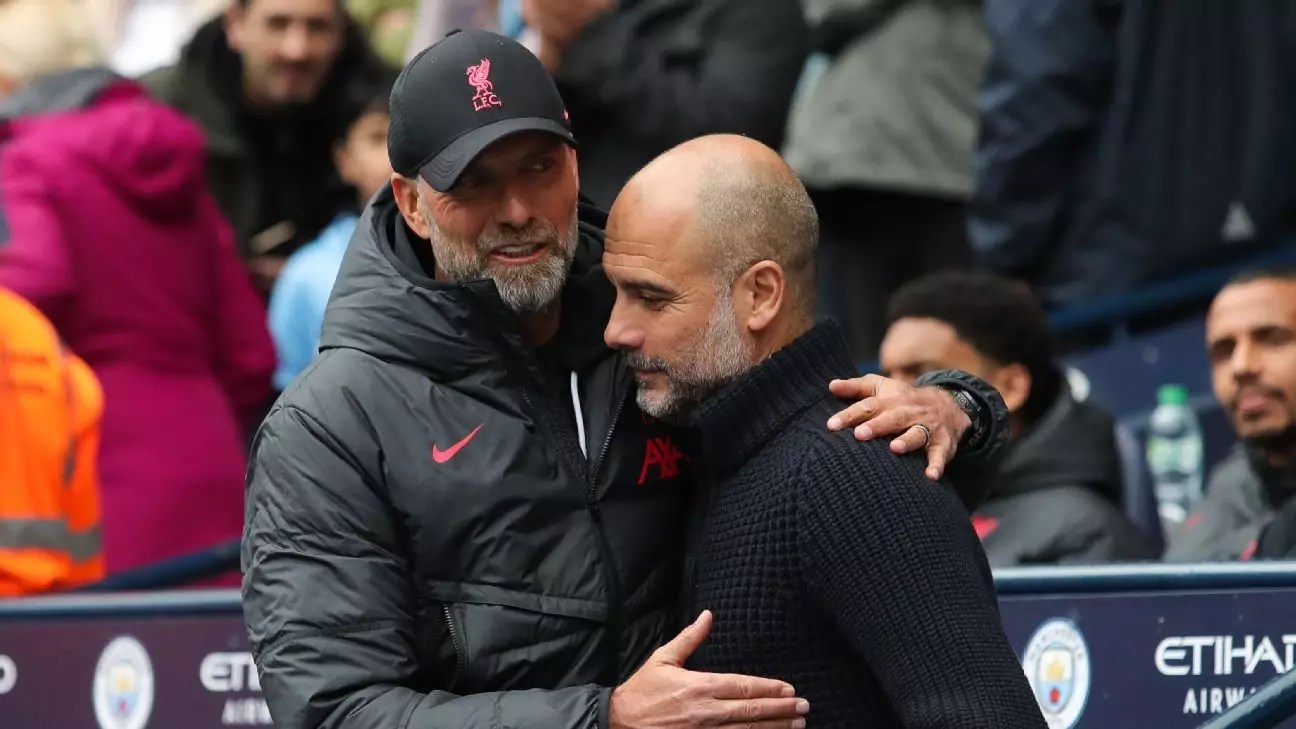The realm of football is a rich tapestry woven with passion, rivalry, and sometimes, controversy. One figure who has stood at the center of this mix is Jürgen Klopp, the former Liverpool manager, whose recent comments on potential changes in the Premier League’s title hierarchy regarding Manchester City brought both intrigue and humor to the forefront of a serious topic: financial misconduct in football.
Klopp’s Lighthearted Take on a Serious Issue
At a recent event as the head of global soccer for Red Bull, Klopp was asked how he would celebrate should Manchester City face punishment for alleged financial rule breaches, which could lead to the stripping of their Premier League titles. Klopp’s tongue-in-cheek response suggested a celebratory gathering on the island of Mallorca, where he playfully invited supporters to join him for a parade, humorously stating, “Just book a flight to Mallorca. I will buy the beer!” While his tone was light, the underlying issue is anything but trivial.
The references to City’s title wins during the 2018-19 and 2021-22 seasons underline the competitive nature of Premier League football, where success often comes under scrutiny beyond the pitch. With City being referred to an independent commission due to a staggering 115 alleged financial breaches spanning nearly a decade, the integrity of the league hangs in the balance. Klopp’s remarks highlight the deep-seated emotions that accompany allegations of financial impropriety, particularly when they involve the teams competing for the same accolades.
In addition to the events surrounding Manchester City, Klopp’s insights reflect the complexities of management and player retention within Liverpool itself. As questions swirl around the contract futures of key players like Mohamed Salah, Trent Alexander-Arnold, and Virgil van Dijk, Klopp humorously distanced himself from the responsibility of negotiating contracts, stating, “I’m so happy I’m not in charge with that situation.” This quip reveals the pressures managers face in balancing competitive aspirations with the need to maintain a cohesive squad.
His evident affection for Salah, whom he labeled as Liverpool’s greatest striker of the modern era, further underscores the importance of stability in high-stakes football. The manager’s hope that Salah will extend his contract signals a desire for continuity amid the turbulence of transfer speculation. Such dynamics can significantly impact a club’s performance and morale, making each decision pivotal for long-term success.
Beyond the contract dilemmas and the potential consequences for financial mismanagement, Klopp delved into broader grievances regarding the scheduling of football events, particularly highlighting his disdain for the FIFA Club World Cup. He criticized the tournament for disrupting summer breaks, arguing that it leads to player fatigue and increased injuries in European football. His assertion, “Who wins the tournament is the poorest winner of all time,” poignantly captures the troubling conflict between club commitments and international tournaments.
The implications of Klopp’s insights extend to the larger conversation about the need for reform in how football is structured, especially concerning match frequency. As he proposed reducing the number of teams in certain leagues, Klopp demonstrates a forward-thinking approach that could potentially alleviate player burnout and elevate the quality of play across leagues.
Jürgen Klopp’s comments serve as a microcosm of the challenges and unpredictabilities that have come to define modern football. The intersection of financial accountability, player management, and scheduling chaos paints a complex picture of what lies ahead for clubs in a rapidly evolving landscape. Klopp, with his charismatic personality and deep understanding of football, encapsulates the concerns of managers and fans alike, offering both a humorous take and essential insights that demand attention. Whether or not Manchester City faces repercussions, Klopp’s perspective reinforces the importance of integrity and foresight in the beautiful game.


Leave a Reply